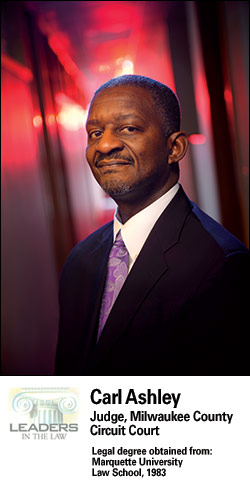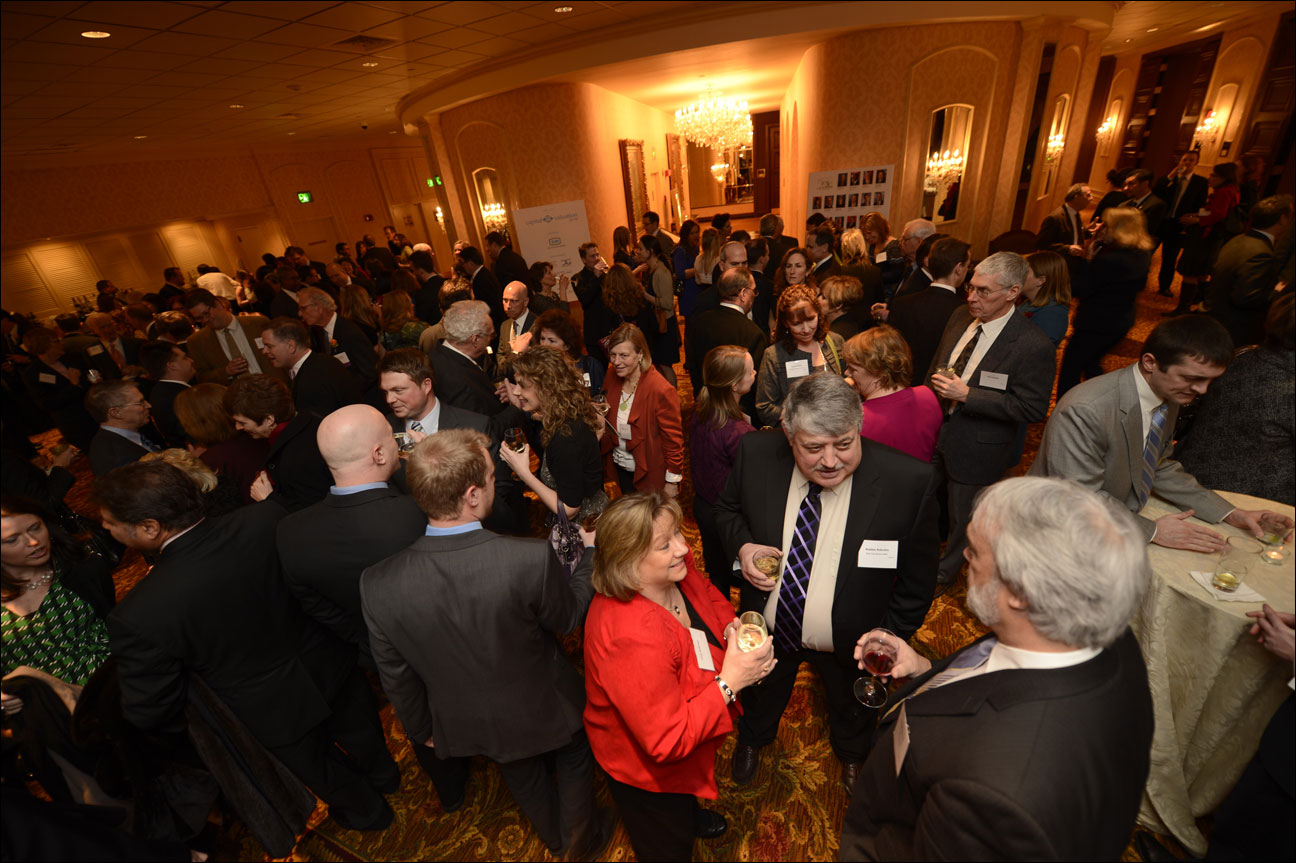Ashley shares lessons learned
By: Jane Pribek//February 5, 2013//
 Not long after Judge Carl Ashley took the bench, he was at a church festival when a man approached saying the judge had sent him to prison.
Not long after Judge Carl Ashley took the bench, he was at a church festival when a man approached saying the judge had sent him to prison.
“He said to me, ‘You helped change my life. I really appreciate how you treated me. You treated me fairly,’” said Ashley, who now is a 13-year veteran judge.
Ashley has often encountered people in the community who have been in his court. And that man’s comments 13 years ago about fairness are typical, Ashley said.
Since that encounter, Ashley has rotated through almost every docket in the Milwaukee County Circuit Court system.
But what stands out to him, he said, is domestic violence court.
The prevailing wisdom when he first got the assignment was that victims are enablers and batterers need anger management, Ashley said. Then he went to training and learned that, by the time a case reaches court, the victim has likely tried to escape the situation several times, and those attempts to leave are the most dangerous points.
“It taught me as a judge that you cannot assume that you understand the dynamics of issues or problems,” he said. “When you’re doing something new, you’ve got to get the training and study the research.”
Ashley has since taught judges nationwide and is a frequent public speaker on domestic violence. He’s done much of that concurrent with long-term service on the Wisconsin Supreme Court’s Planning and Policy Advisory Committee, and as chairman of the Effective Justice Strategies Subcommittee.
Under his leadership, the subcommittee expanded the number of Criminal Justice Coordinating Councils statewide, from just a handful to about four dozen. With coordinating councils, the varying stakeholders come together to craft policies and procedures to improve the justice system and cut down on recidivism.
Fairness and a willingness to learn and share those lessons is a sign of someone at the top of his profession, said Judge Jeffrey Kremers, one of Ashley’s colleagues.
“A good judge is someone who takes the time to learn what’s really going on in cases, from all perspectives, and then structures a sentence that uses the most current research on how to address the various facets,” Kremers said.
“A great judge not only does that himself, but also teaches and mentors other judges. That would be Carl.”
Legal News
- Former law enforcement praise state’s response brief in Steven Avery case
- Eric Toney announces re-election bid for Fond du Lac County District Attorney
- Former Wisconsin Democratic Rep. Peter Barca announces new bid for Congress
- Republicans file lawsuit challenging Evers’s partial vetoes to literacy bill
- More human remains believed those of missing woman wash up on Milwaukee Co. beach
- Vice President Harris returning to Wisconsin for third visit this year
- Wisconsin joins Feds, dozens of states to hold airlines accountable for bad behavior
- Trump ahead of Biden in new Marquette poll
- Bankruptcy court approves Milwaukee Marriott Downtown ‘business as usual’ motion
- New Crime Gun Intelligence Center to launch in Chicago
- Arrest warrant proposed for Minocqua Brewing owner who filed Lawsuit against Town of Minocqua
- Wisconsin Supreme Court justices question how much power Legislature should have
WLJ People
- Power 30 Personal Injury Attorneys – Russell Nicolet
- Power 30 Personal Injury Attorneys – Benjamin Nicolet
- Power 30 Personal Injury Attorneys – Dustin T. Woehl
- Power 30 Personal Injury Attorneys – Katherine Metzger
- Power 30 Personal Injury Attorneys – Joseph Ryan
- Power 30 Personal Injury Attorneys – James M. Ryan
- Power 30 Personal Injury Attorneys – Dana Wachs
- Power 30 Personal Injury Attorneys – Mark L. Thomsen
- Power 30 Personal Injury Attorneys – Matthew Lein
- Power 30 Personal Injury Attorneys – Jeffrey A. Pitman
- Power 30 Personal Injury Attorneys – William Pemberton
- Power 30 Personal Injury Attorneys – Howard S. Sicula






